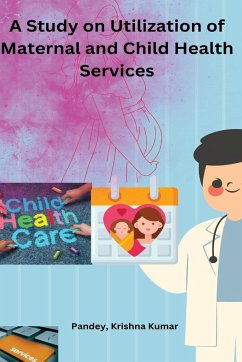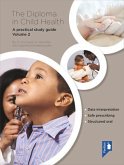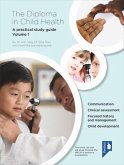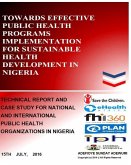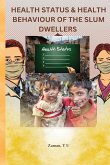Maternal and child health services refer to the care provided to women during pregnancy, childbirth, and the postpartum period, as well as the care provided to children from birth to adolescence. The utilization of these services is crucial in reducing maternal and child mortality rates, particularly in developing countries where access to healthcare is limited.A study on the utilization of maternal and child health services can provide valuable insights into the factors that influence access to and utilization of these services. Such a study can help identify gaps in healthcare delivery and inform the development of strategies to improve maternal and child health outcomes.One of the key factors influencing the utilization of maternal and child health services is access to healthcare facilities. Women and children living in rural or remote areas may have limited access to healthcare services due to the distance they must travel to reach a healthcare facility. In addition, the cost of healthcare services can be a barrier to utilization, particularly for families living in poverty.Quality of care is also an important factor that influences utilization. Women and children who receive high-quality care are more likely to return for subsequent services and recommend the services to others. Quality care includes access to skilled healthcare professionals, clean and well-equipped facilities, and adequate medication and supplies.Another factor that can impact the utilization of maternal and child health services is cultural and social norms. In some communities, traditional beliefs and practices may discourage women from seeking care from skilled healthcare professionals or may limit their access to family planning services. Addressing these cultural and social norms requires community engagement and collaboration with traditional healers and other community members.Education and awareness also play a significant role in the utilization of maternal and child health services. Women and families who are aware of the importance of antenatal care, skilled birth attendance, and immunization are more likely to seek out these services. Education and awareness campaigns can help dispel myths and misconceptions surrounding maternal and child health and encourage families to seek out care.In conclusion, a study on the utilization of maternal and child health services can provide valuable insights into the factors that influence access to and utilization of these services. Addressing the barriers to utilization requires a multifaceted approach that includes community engagement, healthcare infrastructure development, education and awareness campaigns, and collaboration with traditional healers and other community members. By improving access to and utilization of maternal and child health services, we can help reduce maternal and child mortality rates and improve the health outcomes of women and children worldwide.
